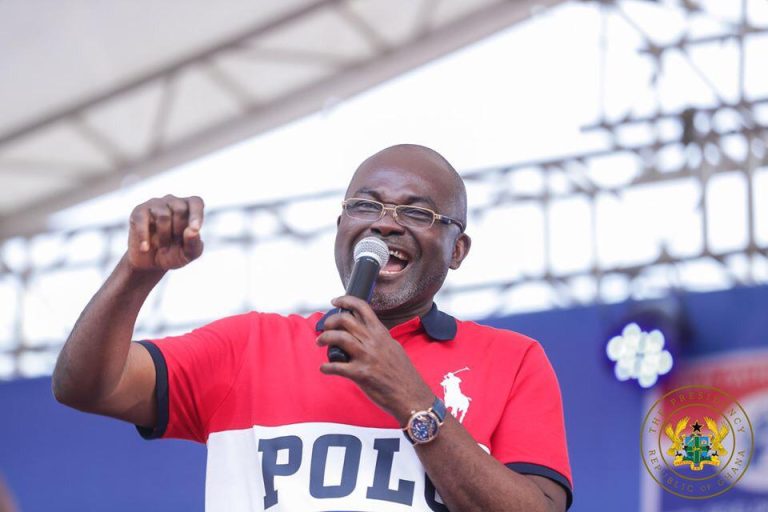New Patriotic Party (NPP) Presidential hopeful, Kennedy Ohene Agyapong has charged delegates not to be influence by money ahead of the November 4 election.
Kennedy Agyapong stressed that the NPP delegates should not allow anybody try to lobby them with money to vote otherwise but they should vote for him for sake of their own future.
According to him, Ghana needs pragmatic leaders who can turn the fortunes around and not theorists who speak big English but has nothing to show.
“If this country can succeed we need pragmatic leaders, we don’t need theorists. They will speak big English but at the end you’ll not have money in your pocket. We want someone who can speak your local dialect and at the end you’ll have money in your pocket, it is better than speaking big English,” Kennedy Agyapong told the delegates.
He asserted that Ghanaians are ready to give him [Kennedy Agyapong] the chance to lead the nation but it is up to the delegates to elect him as the NPP flagbearer on November 4 polls.
The Member of Parliament for Assin Central said he’ll create jobs for the youth if he is elected as President. He added that the future of every country depends on the success of the youth.
“A country in which the future of the youth is bleak that country is no country. Because of this, we must put policies in place and make sure that Ghanaians who get excited after traveling abroad, give me a chance to lead this country and I’ll change this country.”
NPP Primaries: Don't let money influence your decision on November 4 – Kennedy Agyapong to delegates#UTVNews pic.twitter.com/dujRqo66lZ
— UTV Ghana (@utvghana) September 18, 2023
Relatively, Kennedy Agyapong has made it clear that the NPP actually lost the 2024 elections in 2022.
This assertion, according to him, was caused by the significant depreciation of the Ghanaian cedi at the time.
With its exchange rate falling from 7 cedis to 1 dollar to as much as 15 cedis to 1 dollar, the Ghanaian Cedi underwent a significant devaluation against the US dollar. This had a significant impact on the economy and caused a cascading effect that drove up the cost of basic necessities like food and fuel.

